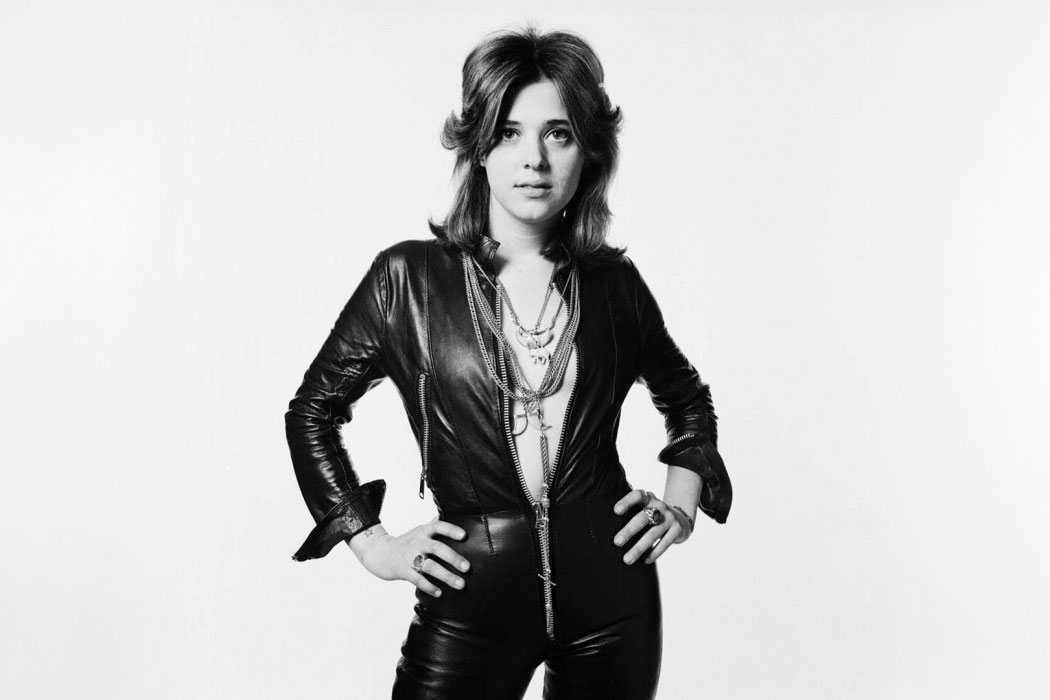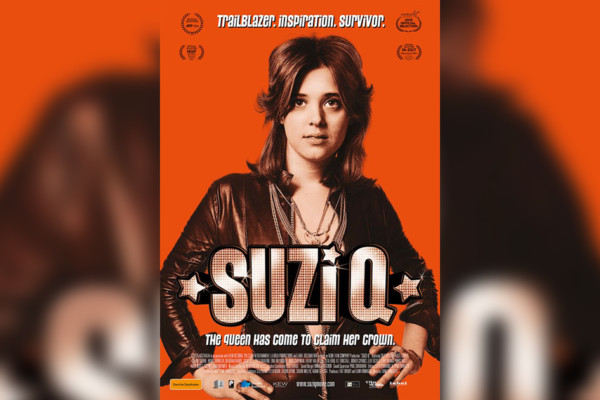Wonder Women: Suzi Quatro

Clad in leather and armed with her powerhouse vocals, attitude, bass guitar, unmistakable stage presence, and rebellious spirit, Suzi Quatro was a groundbreaking icon. She has sold over 55 million records in her career. As of this writing, she has released eighteen studio albums, twenty compilation albums, sixty-three singles, and two live albums. Her singles “Can the Can” and “Devil Gate Drive” reached number 1 in the UK, other European countries, and Australia. In this edition of “Wonder Women: Stories From the Women Who Play Bass,” we delve into Quatro’s journey.
Quatro was born in Detroit, and the family later moved to Grosse Pointe, Michigan. Her love of music was fostered and encouraged by a father who was an engineer at General Motors by day and a semi-professional working musician at night. Art Quatro and his wife Helen raised five children and fostered several others. It was a musical household, with all the siblings playing various instruments. Quatro received classical training on piano and percussion, and she played bongos from an early age as part of her father’s jazz band, the Art Quatro Trio. She cites that Elvis Presley was a major influence at a young age. After seeing him perform on the Ed Sullivan Show, she decided, “I’m gonna do that.”
Quatro was 14 years old when her sister Patti started The Pleasure Seekers, and she immediately designated Quatro as the bass player. Her other sister, Arlene, later joined the band as well, replacing Diane Baker on piano. Quatro’s dad let her use his 1957 Fender Precision bass for the band, which Quatro has noted in many interviews as “the best you could buy.” The Pleasure Seekers toured for seven years. They released their first single in 1964, “Never Thought You’d Leave Me” / “What a Way to Die,” on Hideout. In 1968, they signed to Mercury and released a second single, “Light of Love” /”Good Kind of Hurt.”
The Pleasure Seekers transformed into Cradle in 1969, changing musical direction and name; their sound morphing into a harder psychedelic rock/hard rock/blues rock direction. Janis Joplin’s death in 1970 sent scouts and music producers searching for a female singer who could fill the void left by her passing. This tragedy ultimately created an opportunity for Quatro. Elektra Records had been courting her, saying that they wanted to make her “the new Janis Joplin.”
During a performance with Cradle, she caught the eye of British producer Mickie Most; he had come to Detriot to do recording work, and he decided to catch a Cradle concert. Like others in the industry, he was also searching for a female talent to develop in the wake of Joplin’s passing. Quatro sang and played on her original “Brain Confusion,” followed by a cover of “Jailhouse Rock.” Mickie knew he had something big but wasn’t entirely sure what yet. He called her to the back of the venue and gave her the offer that changed her life forever. But it was a solo contract offer; she would have to leave her family and the band Cradle behind and move to Britain. Quatro says, “According to the Elektra president, I could become the new Janis Joplin. Mickie Most offered to take me to England and make me the first Suzi Quatro.” In 1971, Quatro left Cradle and moved to Britain to begin her career.

Her first hit as Suzi Quatro was “Can The Can,” which went to number one in May 1973 and went on to sell two and a half million copies worldwide, mainly to audiences in Europe and Australia. This single made Quatro the first female bass guitar player to become a major rock star, breaking a barrier in a male-dominated genre.
Quatro followed up with hits like “Devil Gate Drive” (1974), “If You Can’t Give Me Love” (1978) and “Stumblin’ In” (1978). Quatro’s bio states “Between 1973 and 1980, Quatro featured in the British charts for no less than 101 weeks, and has sold to date over 55 million records, and still counting. Her hits include ’48 Crash,’ ‘Too Big,’ ‘Devil Gate Drive,’ ‘Daytona Demon,’ ‘The Wild One,’ ‘She’s in Love With You,’ ‘Mama’s Boy,’ ‘If You Can’t Give Me Love,’ ‘Rock Hard,’ and a million seller in the USA, ‘Stumblin In,’ a duet with Chris Norman.“ Quatro was also awarded six Bravo Ottos (a German accolade honoring the excellence of performers in film, television, and music). In 2010, she was voted into the Michigan Rock and Roll Legends online Hall of Fame.
Quatro is also a successful actress, portraying the recurring role of bass player Leather Tuscadero on the sitcom Happy Days. She was cast as Annie Oakley in the 1986 London revival of Irvin Berlin’s musical Annie Get Your Gun.
In July 2020, a documentary titled Suzi Q was released documenting her accomplishments. Producer Tait Brady noted, “Over the four-plus years making the film, the idea that Quatro’s status had been forgotten in the USA slowly dawned on us – because in the rest of the world, everyone knows that she is the first and one of the most important trailblazers in rock’n’roll! That then influenced the film’s direction – it became our mission to redress history. Getting the film out to American audiences ultimately became our major goal, so Liam (Firmager) and I are thrilled that Utopia are taking it out in the US.”
The documentary had a profound effect on Quatro as well; “…all these women, everybody you can think of — Debbie Harry, Chrissie Hynde, Kathy Valentine, Joan Jett, Cherie Currie, KT Tunstall — they all said the same thing: that if it hadn’t been for me, none of them would’ve picked up an instrument. So I’m crying. I’m on the side of the theater crying. It really affected me.”
Her most recent release is a collaboration with KT Tunstall, titled Face to Face. Quatro comments, “I was a fan of KT from the first hit — liked her voice, her songwriting, and her musicianship. We are indeed cut from the same cloth, which is where our artistry met and flourished. A match made in heaven.” In another interview, Quatro notes, “We got together after I saw her in my documentary. I didn’t even know she was a fan, and I was a fan of hers. We connected really heavily.”
An electrifying performer, a trailblazing musician, a rock icon, an actress, and a woman who has rocked her way into the hearts of millions, Suzi Quatro is the embodiment of individuality, power, and presence. Quatro’s journey reminds us that she’s not just a Wonder Woman of Bass – she is a pioneer. She is the first woman to front a rock band, play an instrument, sing lead, write songs, and have international hits while inspiring countless women to pursue careers in music along the way.
Brittany Frompovich is a highly regarded educator, clinician, blogger, and bassist who currently resides in the Washington DC/NOVA region. For more content from Brittany, check out her blog, her YouTube channel, and her Bandcamp site. She also offers handmade unisex music-themed jewelry through her Etsy store. Get a Wonder Woman Tee!



